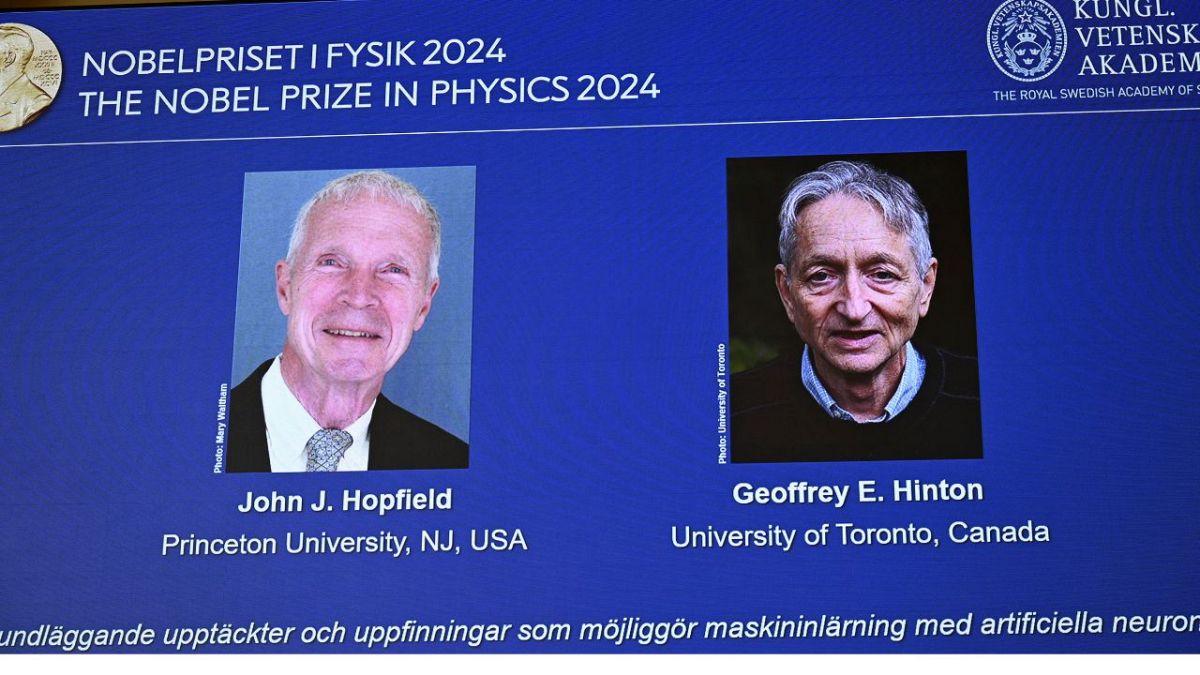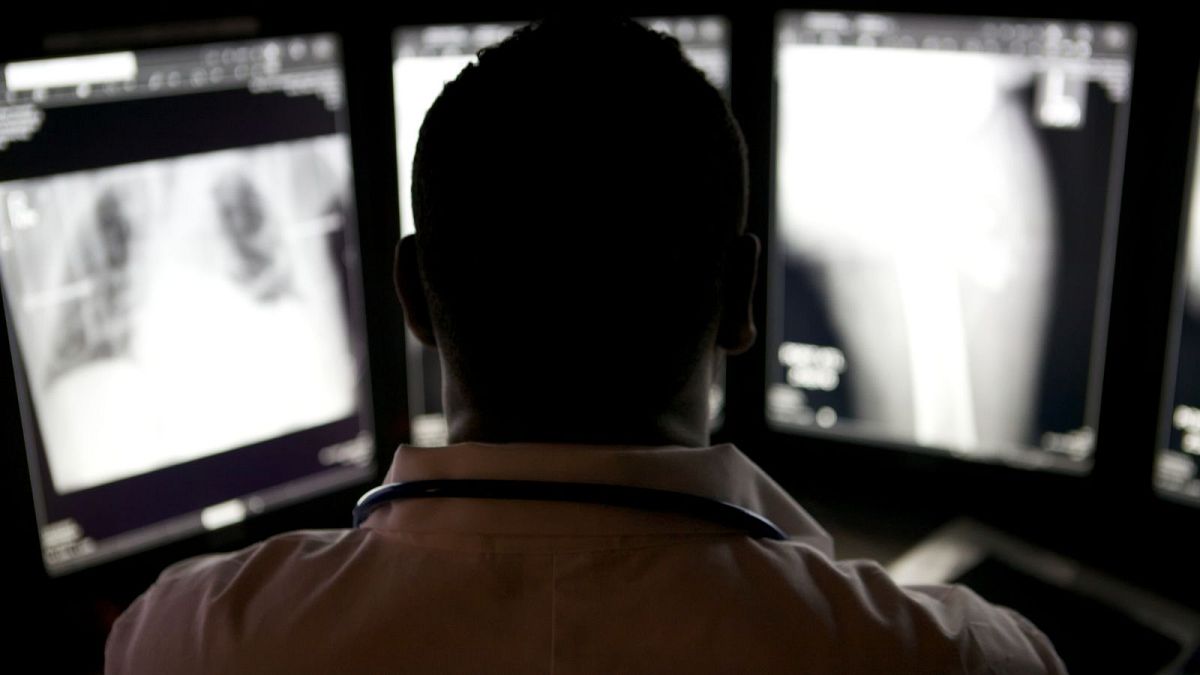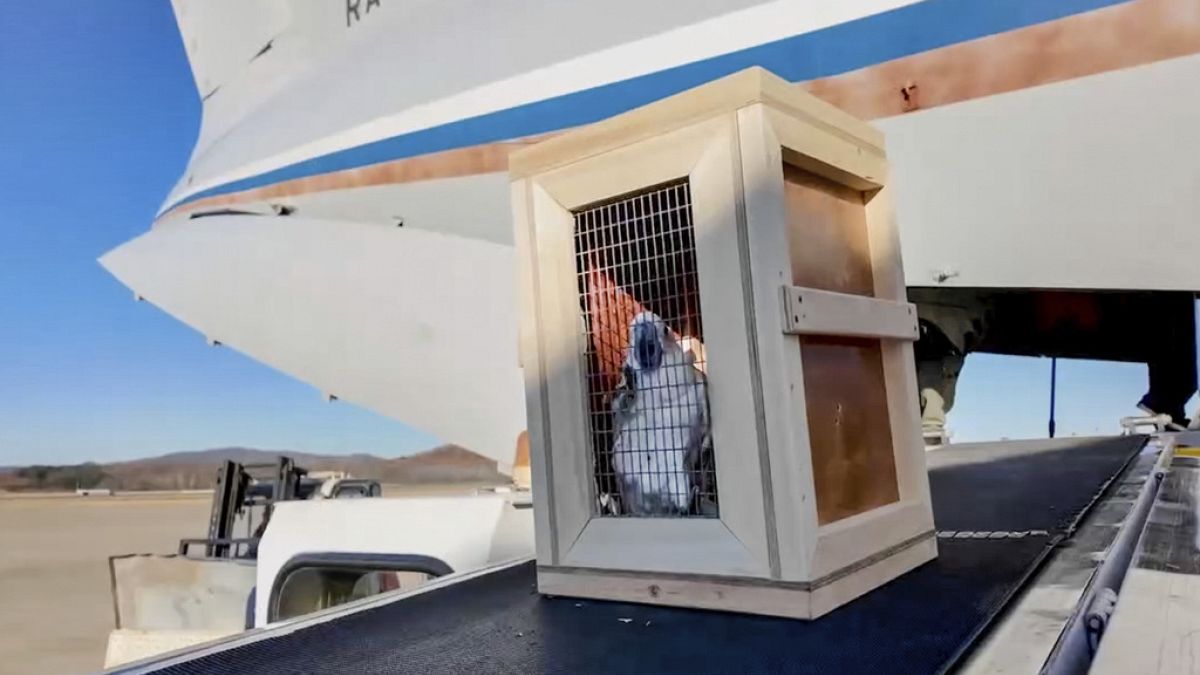Is AI physics or chemistry? Nobel Prize wins spark debate

The Nobel Prize announcements this week heavily featured the use of AI, which has ignited discussion over traditional sciences.
Artificial intelligence (AI) jumped into the upper echelons of scientific achievement this week, winning as part of the Nobel prizes in physics and chemistry.
The awards highlight the impact the technology is making in every aspect of our lives but have also sparked debate and even outrage on social media by researchers about how AI is related to these scientific disciplines.
“I’m speechless. I like machine learning and artificial neural networks as much as the next person, but hard to see that this is a physics discovery,” Jonathan Pritchard, an astrophysicist at Imperial College London wrote on X.
“Guess the Nobel got hit by AI hype,” he added.
The Nobel Prize is usually awarded for decades-old research after its impact can be assessed to have “the greatest benefit to humankind”.
The winners
One of the so-called ‘godfathers of AI’ Geoffrey Hinton and professor and physicist John Hopfield were awarded the Nobel Prize in Physics on Tuesday for their work that began in the 1980s, which drew on physics concepts to invent artificial neural networks that sparked and influenced AI’s development.
A day later, AI hit the Nobel headlines again after Google DeepMind CEO Demis Hassabis, DeepMind director John Jumper and University of Washington professor David Baker jointly won the Chemistry prize for their work on proteins.
Baker was praised for his work on an AI-driven protein prediction tool called RoseTTAFold and his work developing new proteins. Hassabis and Jumper, meanwhile, developed an AI system that cracked a 50-year problem of predicting the structure of a protein.
“It’s far too premature to talk about AI being involved in all prizes,” said Hassabis at a press conference.
“The human ingenuity comes in first – asking the question, developing the hypothesis – and AI systems can’t do any of that. It just sort of analyses data right now,” he said, adding that it was “interesting the committee decided to make a statement” by having the two AI-linked prizes.
Is AI related to physics and chemistry?
“My first reaction was that we are not taking seriously enough what AI is,” said David Vivancos, CEO of the deep learning and AI organisation MindBigData.com.
“I am a big admirer of [Hinton and Hopfield] and they have created a marvellous discovery. But the thing is, it’s not in the realm of physics unless we think that physics is everything,” he told Euronews Next.
According to the Oxford English Dictionary, physics is described as “the branch of science concerned with the nature and properties of non-living matter and energy,” meaning something that is physically there.
Vivancos explained his view that physics “is tied to something physical, it is something real,” while in terms of how AI behaves “it is more related to something that is happening in the mind of the computer instead of a physical being”.
But could AI be related to chemistry? In the case of the Nobel Prizes, arguably it can because it is computational chemistry, which uses computer simulation to assist in solving complex chemical problems.
“The use of AI to predict protein structure is a huge advance with a myriad of uses in biology, medicine, and beyond,” Andy Cooper, a professor of chemistry and director of the Materials Innovation Factory and Leverhulme Centre for Functional Materials Design at the University of Liverpool, said in a statement.
“AI will impact other areas of chemistry, too, but the protein field has some special features.
“First, there is a large amount of well-curated training data. Second, proteins are structurally complex but compositionally fairly simple — they are built from a quite small selection of building blocks, ” he added.
There are different types of AI, such as generative, but broadly speaking AI is defined as a technology that enables computers and machines to simulate human learning, comprehension, and problem-solving.
AI’s ‘triumph of interdisciplinarity’
If AI should fit into a traditional science, then perhaps it is closer to mathematics, said Vivancos.
But he also argued it could be biology or neuroscience due to the algorithms which can help researchers comb through vast genetic data libraries.
AI can fit into most categories and will arguably impact all of our lives on some level. For example, the technology has also been used to manage real-time road traffic, navigation apps like Google Maps, and in everyday items such as robot vacuum cleaners.
The Nobel prizes in chemistry and physics being awarded to the use of AI shows the technology’s “triumph of interdisciplinarity,” said Virginia Dignum, a professor in the computing science department at Umeå University in Sweden who also leads the university’s Social and Ethical Artificial Intelligence research group.
“The real breakthroughs in science are no longer the domain of a single discipline but require a broad perspective and the combination of different insights,” she told Euronews Next.
“AI is here an accelerator and a support for the exploration of great spaces of research, a tool that can analyse vast datasets, predict outcomes, and even suggest new hypotheses, enhancing the capabilities of researchers in fields like biology, physics, chemistry, and medicine,” she added.
But Dignum said that the awards are not about AI’s place in the Nobel Prizes, it is about the open-mindedness and “respectful attitude of scientists” and how much can be learned.
“Maybe it is time to modernise the Nobel Prizes to recognise that the discoveries that really matter are beyond the traditional division in disciplines,” Dignum said.
World News || Latest News || U.S. News
Source link



